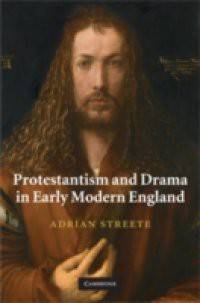Containing detailed readings of plays by Shakespeare, Marlowe and Middleton, as well as poetry and prose, this book provides a major historical and critical reassessment of the relationship between early modern Protestantism and drama. Examining the complex and painful shift from late medieval religious culture to a society dominated by the ideas of the Reformers, Adrian Streete presents a fresh understanding of Reformed theology and the representation of early modern subjectivity. Through close analysis of major thinkers such as Augustine, William of Ockham, Erasmus, Luther and Calvin, the book argues for the profoundly Christological focus of Reformed theology and explores how this manifests itself in early modern drama. Moving beyond questions of authorial 'belief', Streete assesses Elizabethan and Jacobean drama's engagement with the challenges of the Reformation.

